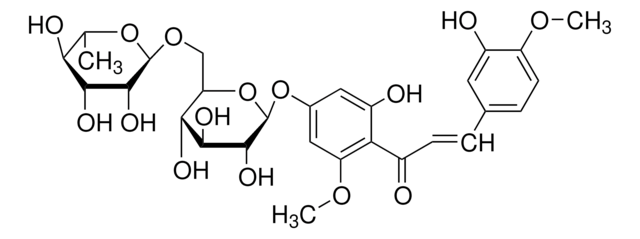MAK106
CETP Activity Assay Kit
Supplied by Roar Biomedical, Inc.
Sinónimos:
Cholesteryl ester transfer protein activity assay kit
Iniciar sesiónpara Ver la Fijación de precios por contrato y de la organización
About This Item
UNSPSC Code:
12161503
NACRES:
NA.84
Productos recomendados
usage
sufficient for 100 fluorometric tests
application(s)
pharmaceutical
detection method
fluorometric
relevant disease(s)
cardiovascular diseases
storage temp.
2-8°C
Gene Information
human ... CETP(1071)
General description
Cholesteryl ester transfer protein (CETP) is present in normal human plasma. The protein transfers neutral lipids from high density lipoproteins (HDL) to very low density lipoprotein (VLDL) and low density lipoprotein (LDL). CETP plays an important role in lipoprotein metabolism and influences the reverse cholesterol transport pathway. The method is useful for measuring CETP activity in plasma or serum in all species that express CETP.
Application
Cholesteryl ester transfer protein (CETP) activity Assay Kit has been used for measurement of CETP activity in the plasma samples.
Features and Benefits
Compatible with high-throughput handling systems.
Suitability
Suitable for the detection of cholesteryl ester transfer protein (CETP) in plasma / serum (fresh or frozen), recombinant or purified CETP.
Principle
The CETP Activity Assay Kit uses a proprietary substrate that enables the detection of CETP-mediated transfer of neutral lipid from the substrate to a physiological acceptor. The transfer activity results in an increase in fluorescence intensity (λEx=535 nm/λEm=587 nm). In a total volume of 200 μL, the assay is linear from 0.2 to 0.8 μL of normal human plasma. Assay results not affected by endogenous plasma HDL, LDL or VLDL concentrations.
related product
Referencia del producto
Descripción
Precios
Storage Class
10 - Combustible liquids
Elija entre una de las versiones más recientes:
¿Ya tiene este producto?
Encuentre la documentación para los productos que ha comprado recientemente en la Biblioteca de documentos.
Thor Ueland et al.
The Journal of clinical endocrinology and metabolism, 105(3) (2019-10-31)
Cholesteryl ester transfer protein (CETP) regulates high-density lipoprotein (HDL) cholesterol levels and interaction between glucose, and HDL metabolism is central in the development of diabetes. We hypothesized that CETP levels would be regulated in diabetic pregnancies. We tested the hypothesis
Lisa Sawrey-Kubicek et al.
The American journal of clinical nutrition, 110(3), 617-627 (2019-06-07)
Postmenopausal women are at higher risk for cardiovascular disease (CVD) than their younger counterparts. HDL cholesterol is a biomarker for CVD risk, but the function of HDL may be more important than HDL cholesterol in deciphering disease risk. Although diet
Catherine J McNeal et al.
Cardiovascular research, 98(1), 83-93 (2013-01-29)
We discovered that some adults with coronary heart disease (CHD) have a high density lipoprotein (HDL) subclass which induces human aortic smooth muscle cell (ASMC) apoptosis in vitro. The purpose of this investigation was to determine what properties differentiate apoptotic
Zhaosha Li et al.
Biochemical pharmacology, 84(6), 821-829 (2012-07-04)
The anti-dyslipidemic drug niacin has recently been shown to reduce the hepatic expression and plasma levels of CETP. Since liver macrophages contribute to hepatic CETP expression, we investigated the role of macrophages in the CETP-lowering effect of niacin in mice.
Mark Trinder et al.
American journal of respiratory and critical care medicine, 199(7), 854-862 (2018-10-16)
High-density lipoprotein (HDL) cholesterol (HDL-C) levels decline during sepsis, and lower levels are associated with worse survival. However, the genetic mechanisms underlying changes in HDL-C during sepsis, and whether the relationship with survival is causative, are largely unknown. We hypothesized
Nuestro equipo de científicos tiene experiencia en todas las áreas de investigación: Ciencias de la vida, Ciencia de los materiales, Síntesis química, Cromatografía, Analítica y muchas otras.
Póngase en contacto con el Servicio técnico








